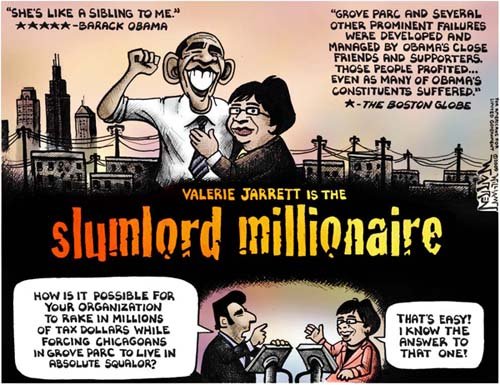Understanding What Is A Slum Lord: Key Facts And Impact On Communities

A slum lord, simply put, is a landlord who neglects their property and exploits tenants. These individuals prioritize profits over the well-being of those living in their buildings. With crumbling infrastructure and inadequate living conditions, a slum lord’s properties are often synonymous with hardship and neglect. Tenants are left to endure leaking roofs, unsafe structures, and unsanitary conditions. Understanding the impact of a slum lord’s actions is crucial in addressing the pressing issues of substandard housing in our communities.
What is a Slum Lord: Exploring the World of Negligent Landlords
Welcome, young readers! Today, let’s delve into the world of landlords but not just any landlords – we’re talking about a specific type known as “slum lords.” You may have heard this term before, but what exactly does it mean? Join me as we uncover the truth behind slum lords and understand why their actions are harmful to communities.
Understanding the Term “Slum Lord”
First things first, let’s break down the term “slum lord.” A slum lord is a landlord who owns and manages properties that are in poor condition, often lacking basic amenities and proper maintenance. These landlords typically prioritize profit over the well-being of their tenants, leading to unsafe and unhealthy living conditions.
Slum lords may own multiple properties, ranging from run-down apartment buildings to neglected single-family homes. Their primary goal is to collect rent without investing in necessary repairs or improvements to ensure that their tenants have a decent place to live.
Spotting the Signs of a Slum Lord
So, how can you identify a slum lord and the properties they manage? Here are some common signs to look out for:
1. Poor Maintenance
Properties owned by slum lords tend to have visible signs of neglect, such as broken windows, leaky roofs, and pest infestations. Maintenance requests from tenants often go unanswered, leading to deteriorating living conditions.
2. Safety Hazards
Slum lords may ignore safety regulations, putting tenants at risk of accidents and injuries. Lack of proper lighting, faulty electrical wiring, and missing fire alarms are just a few examples of safety hazards that can be found in properties managed by slum lords.
3. Lack of Amenities
Basic amenities like heating, hot water, and proper sanitation may be missing in properties owned by slum lords. Tenants are often forced to live without essential utilities that are necessary for a comfortable lifestyle.
The Impact of Slum Lords on Communities
Now that we know what defines a slum lord, let’s explore the negative impact they have on communities:
1. Health Risks
Living in substandard housing conditions can have serious health consequences for tenants. Mold growth, pest infestations, and poor ventilation can lead to respiratory issues, allergies, and other health problems.
2. Financial Exploitation
Slum lords often charge high rents for properties that are in deplorable condition, taking advantage of low-income tenants who may not have other housing options. This financial exploitation can trap individuals and families in a cycle of poverty.
3. Community Deterioration
Properties managed by slum lords can drag down the overall quality of a neighborhood, affecting property values and creating a negative environment for residents. Vacant, poorly maintained buildings attract crime and contribute to the decline of communities.
Taking Action Against Slum Lords
It’s essential to hold slum lords accountable for their actions and advocate for better living conditions for all tenants. Here are some steps that can be taken to address the issue:
1. Know Your Rights
Tenants have rights that protect them from living in unsafe or unsanitary conditions. Familiarize yourself with local tenant rights laws and regulations to understand what standards landlords are required to meet.
2. Report Violations
If you suspect that your landlord is a slum lord or if you are experiencing issues with your rental property, don’t hesitate to report violations to the appropriate authorities. This can help initiate inspections and enforcement actions against negligent landlords.
3. Seek Support
Reach out to community organizations, legal aid services, or tenant associations for support in dealing with a slum lord. Collective action and advocacy efforts can bring about positive change and improve housing conditions for everyone.
As we wrap up our exploration of slum lords, remember that everyone deserves a safe and healthy place to call home. By understanding what defines a slum lord and being vigilant in recognizing the signs of neglect, we can work together to combat this issue and create better living environments for all. Let’s stand up against slum lords and promote housing justice in our communities!
What is a Slum Lord?
Frequently Asked Questions
What characteristics define a slum lord?
A slum lord is a property owner or manager who neglects their responsibilities to maintain safe and habitable living conditions in their rental properties. They often exploit tenants by providing substandard housing, ignoring repair requests, and violating housing codes.
How does a slum lord impact tenants?
A slum lord negatively affects tenants’ quality of life by subjecting them to living in unsanitary and unsafe conditions. Tenants may experience issues such as mold, pest infestations, structural failures, and inadequate heating or plumbing, leading to health hazards and discomfort.
What legal recourse do tenants have against a slum lord?
Tenants can take legal action against a slum lord by reporting code violations to local housing authorities, filing complaints with tenant unions or advocacy groups, and pursuing lawsuits for breach of lease agreements or negligence. Some jurisdictions also provide remedies such as rent withholding or repair-and-deduct options.
Final Thoughts
In conclusion, a slum lord is an unethical landlord who neglects their properties and ignores the well-being of their tenants. They prioritize profits over providing safe and habitable living conditions. Slum lords often exploit vulnerable individuals and communities, perpetuating cycles of poverty and injustice. It is crucial to hold these landlords accountable for their actions and advocate for better housing standards.







